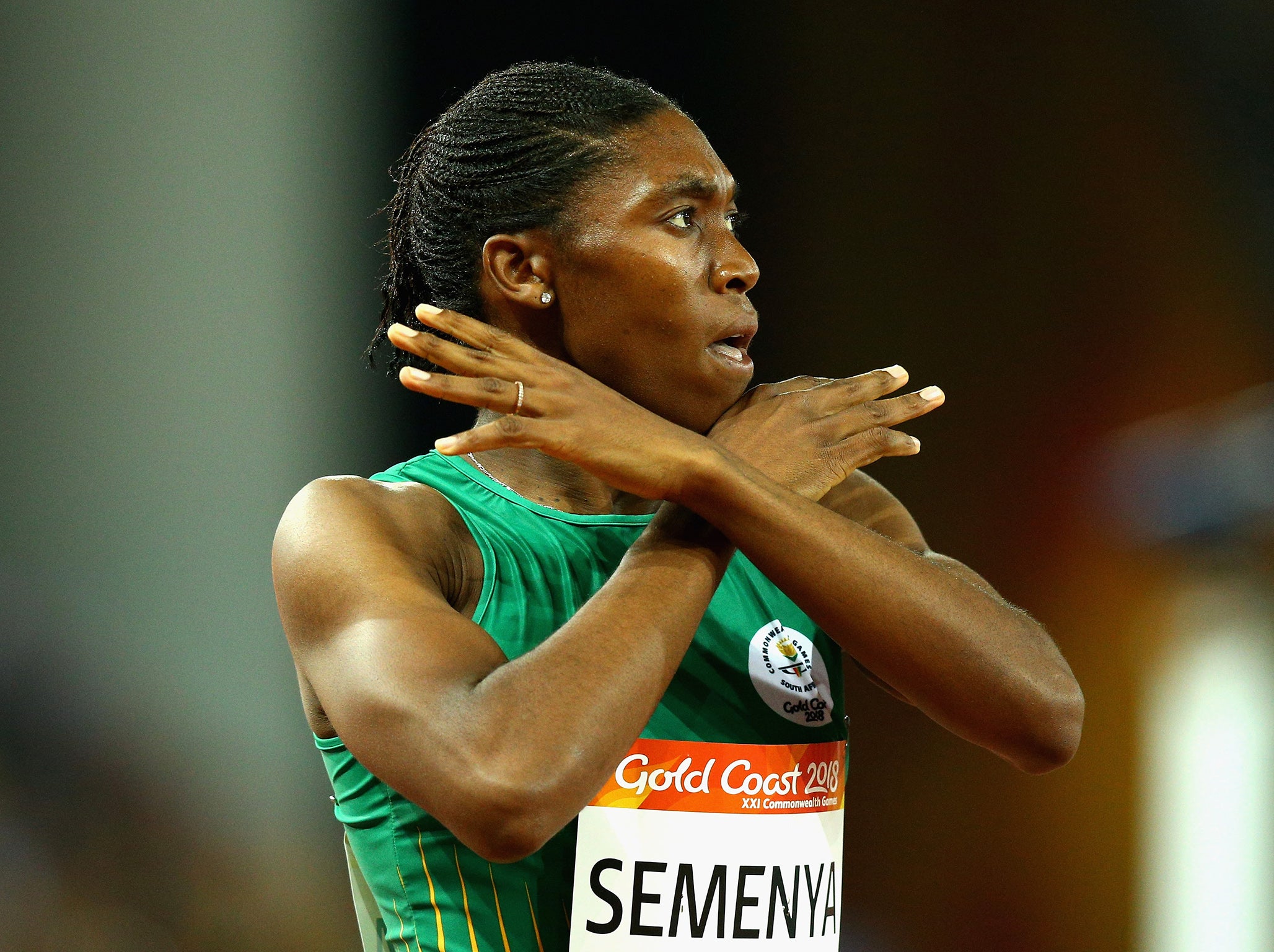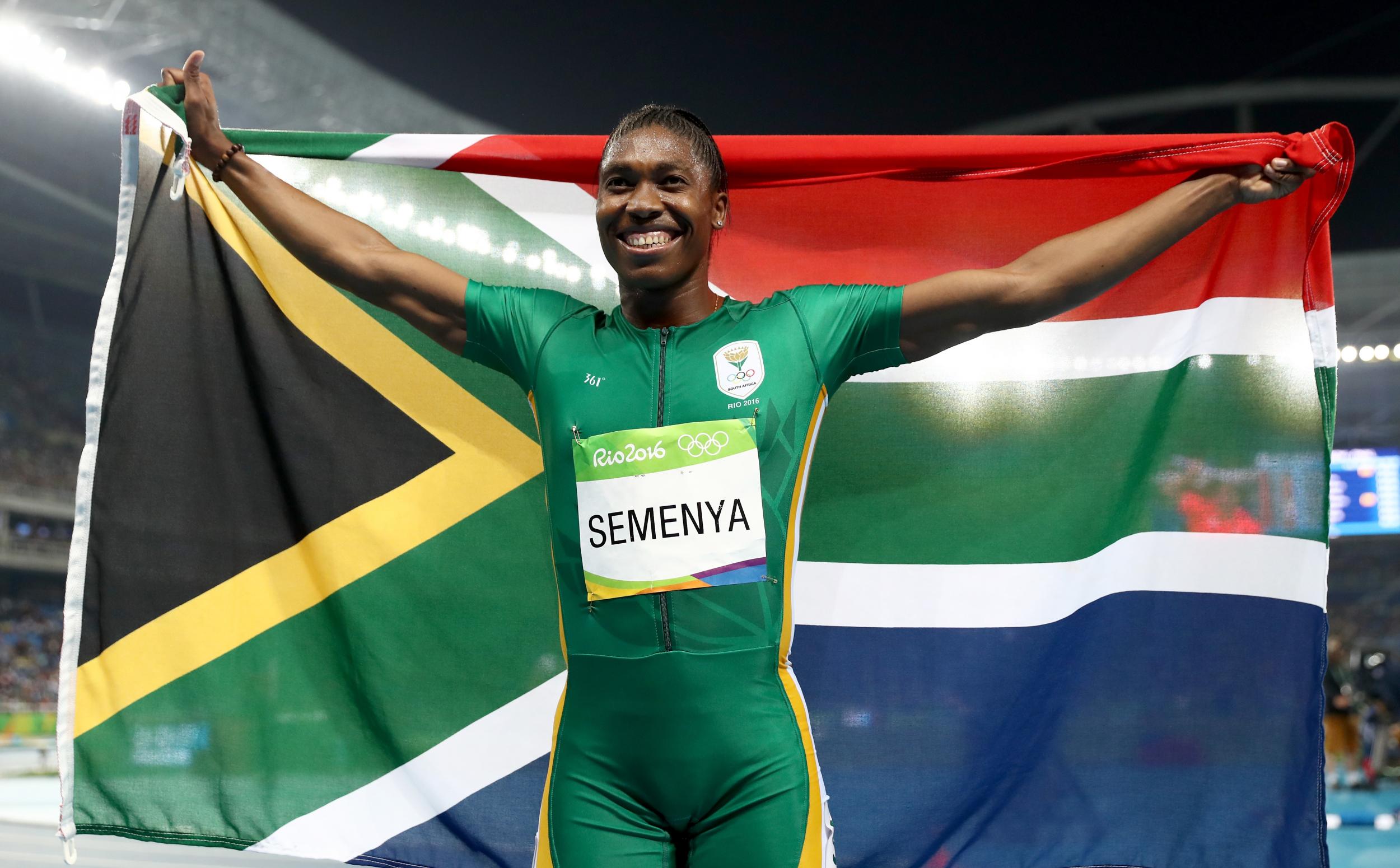Caster Semenya’s lawyers claim IAAF testosterone limit is ‘flawed and hurtful’
The two-time Olympic 800 metres champion is challenging the IAAF’s revised eligibility rules for female athletes
Caster Semenya‘s lawyers have hit back at the IAAF on day two of their hearing at the Court of Arbitration for Sport, claiming the international governing body’s proposed testosterone limit for women is “flawed” and “hurtful”.
The two-time Olympic 800 metres champion is challenging the IAAF’s revised eligibility rules for female athletes at the Lausanne-based tribunal in a landmark case for intersex and transgender women in all sports.
On Monday, the IAAF issued a press release that named five of the expert witnesses it is calling this week to support its case, a move that Semenya’s legal team described as a “clear breach” of the CAS rules on confidentiality and an attempt “to influence public opinion”.
As promised, the South African star’s lawyers have now released their own expert witness list and responded to the IAAF’s claim that the testosterone limit is intended to “empower girls and women” by maintaining a level playing field.
In a statement, they said: “Ms Semenya believes that she and other women affected by the regulations should be permitted to compete in the female category without discrimination, and celebrated for their natural talents as are all other athletes with genetic variations.

“The IAAF’s regulations do not empower anyone. Rather, they represent yet another flawed and hurtful attempt to police the sex of female athletes. Ms Semenya’s courage and perseverance in her fight to run free is an inspiration to young athletes in her home country of South Africa and around the globe.”
Among the 10 legal and medical experts named by Semenya’s lawyers are four academics from British universities and an English psychologist.
For its part, the IAAF told Press Association Sport on Monday evening it had not breached any confidentiality rules by revealing the names of its experts, saying CAS had “agreed” this was a choice for each of the two parties to make.
Questions about who can compete as a woman, and how this is policed, go back to the first organised, female-only events but in recent years the debate has centred on the possible advantages that some women may get from their high levels of testosterone, the male sex hormone.
This is usually because they have one of a number of rare genetic conditions described as differences or disorders of sexual development (DSD). In some of these cases, this means they have internal, undeveloped testes that produce male-like levels of testosterone.

Semenya has been the focus of the IAAF’s attempts to regulate this highly complicated and sensitive subject ever since she burst onto the global scene at the 2009 World Championships in Berlin, the first of her three world titles.
In 2011, the Monaco-based organisation introduced a limit on the amount of testosterone a female competitor could have in their bloodstream of 10 nanomoles per litre (nmol/L), approximately five to six times over the usual female range for the hormone.
But in 2014, Indian sprinter Dutee Chand started a legal challenge against the rule at CAS and, a year later, sport’s highest court told the IAAF to suspend the rule for two years, pending further research.
After that suspension was extended by six months, the IAAF returned to CAS in early 2018 with what it claimed was robust evidence that high levels of testosterone gave a game-changing advantage in track events between 400 metres and a mile.
Armed with this apparent proof, the IAAF introduced a revised testosterone limit of 5nmol/L but only for those events, which means athletes like Semenya must use hormone suppressants to get their testosterone below the bar for at least six months before competing.
Those rules were meant to be introduced on November 1, 2018, but the IAAF has postponed that until CAS has made a ruling on Semenya’s challenge, which the court has promised by March 26 – six months and two days before the start of the 2019 World Championships in Doha.
PA
Join our commenting forum
Join thought-provoking conversations, follow other Independent readers and see their replies
Comments
Bookmark popover
Removed from bookmarks